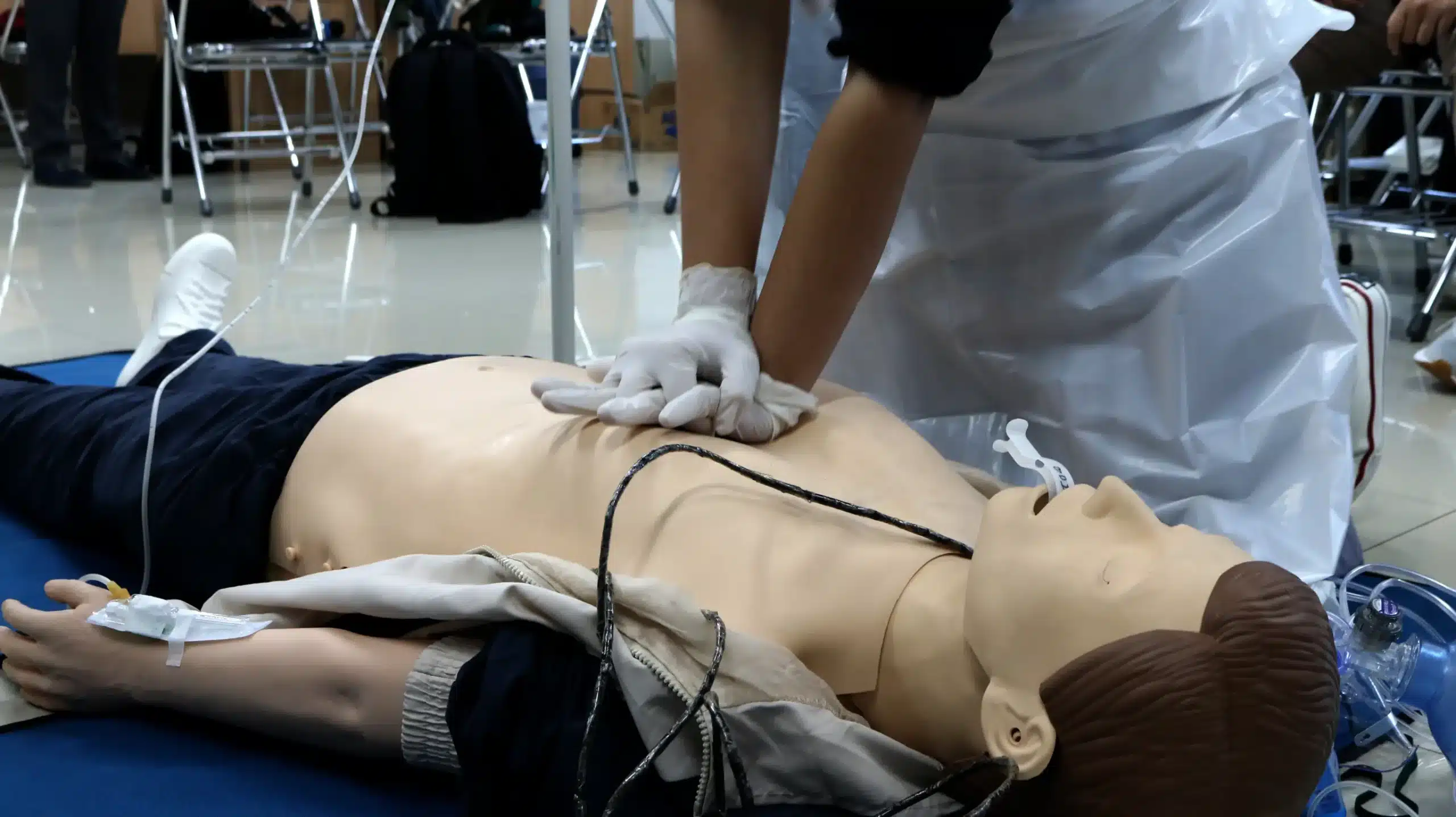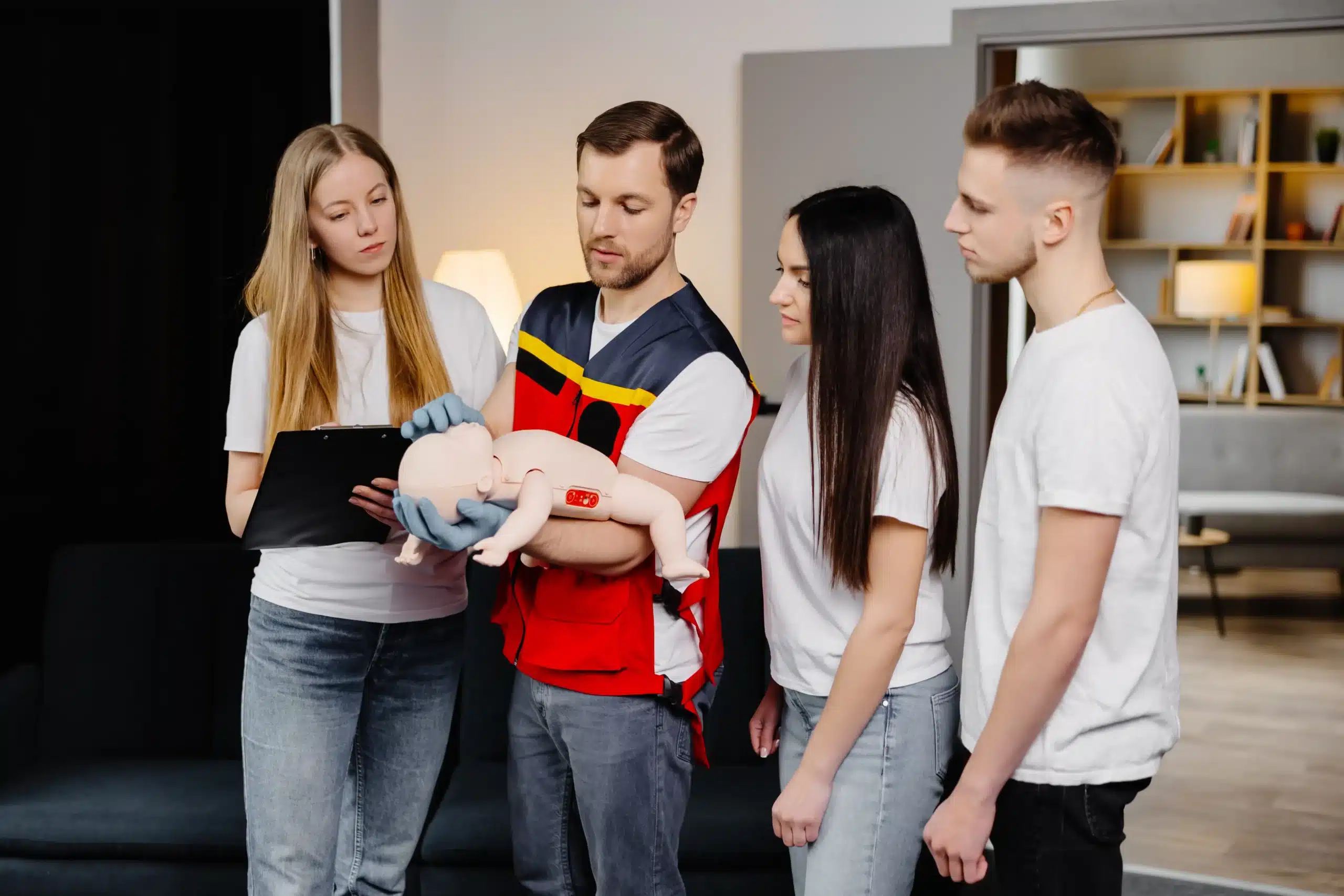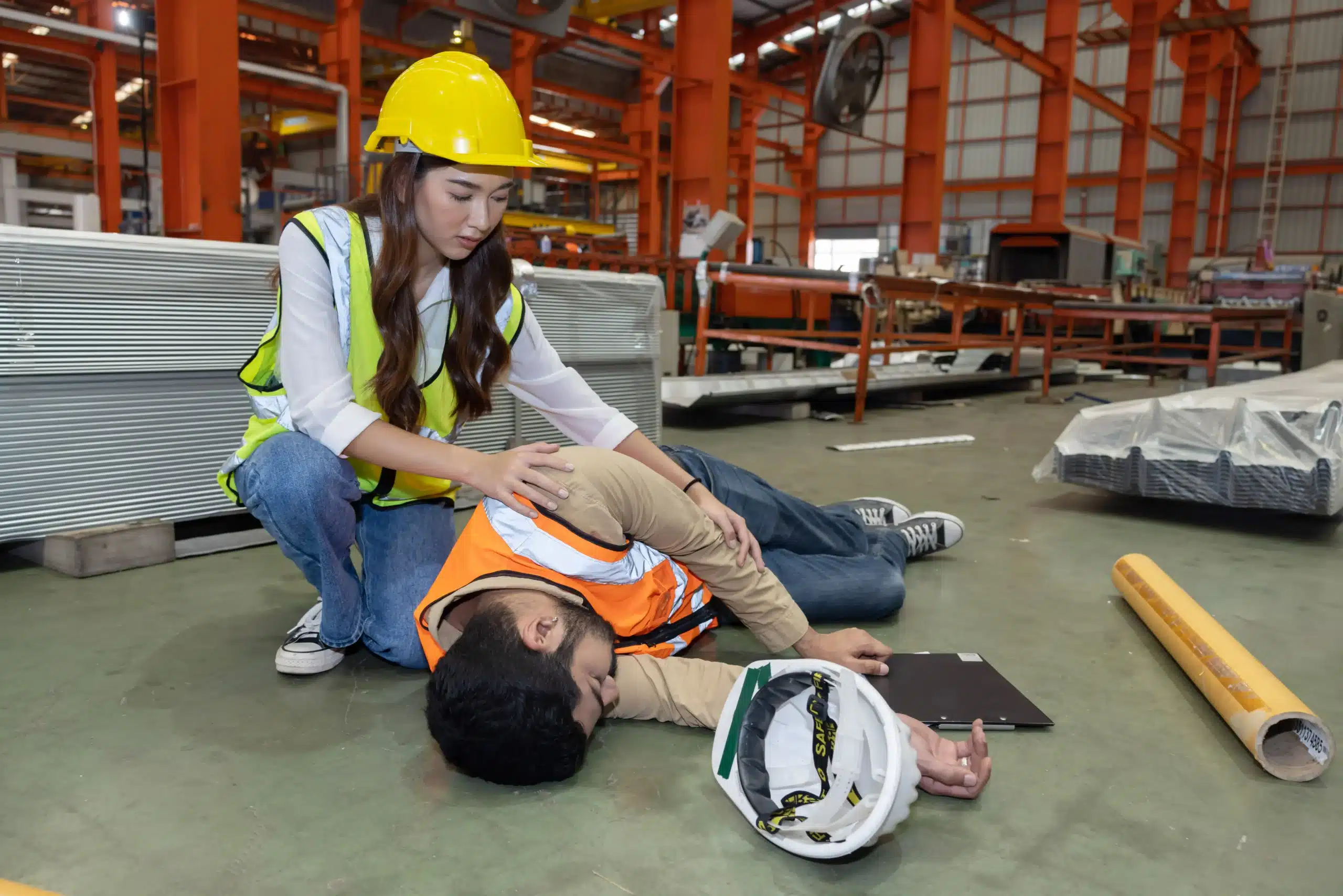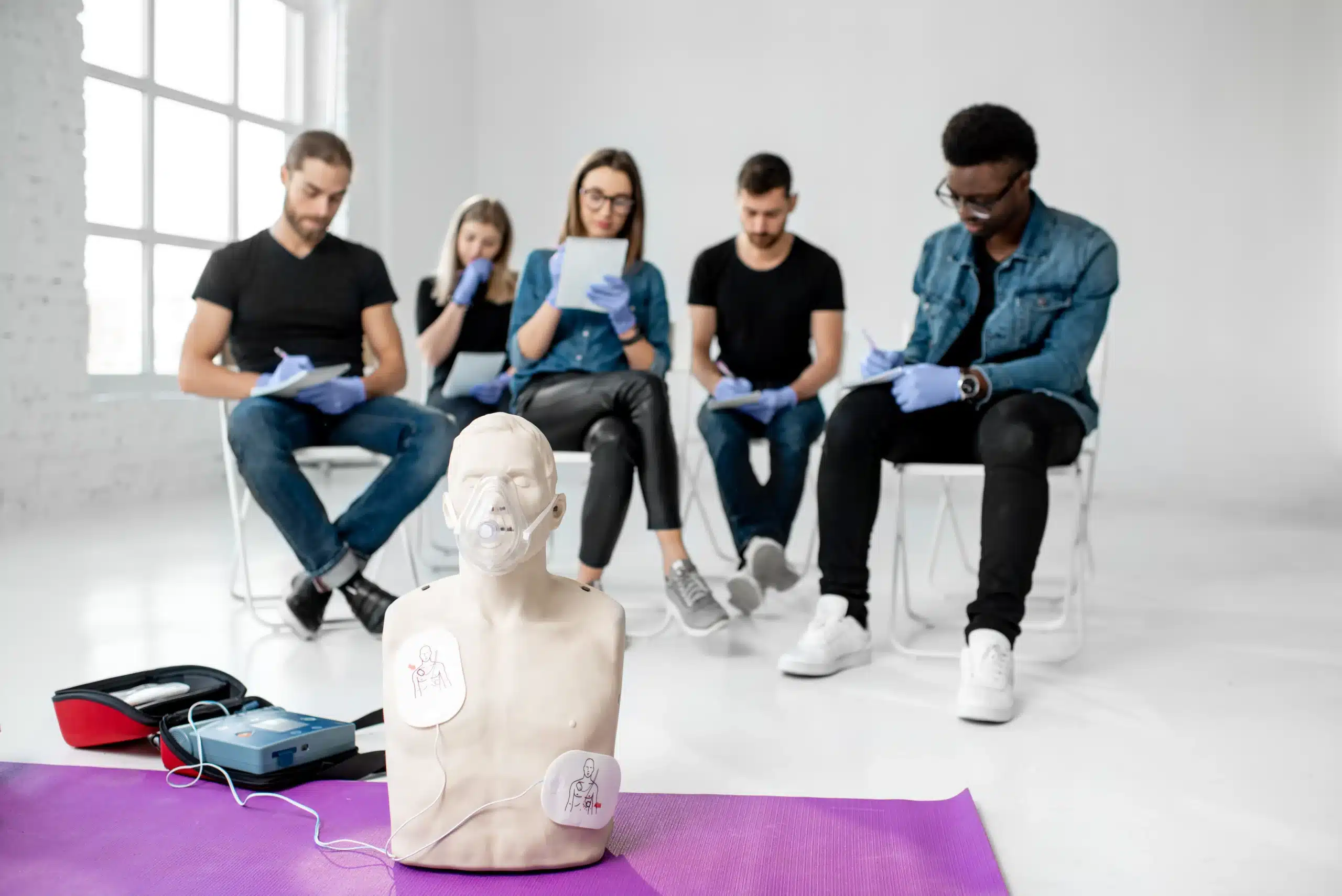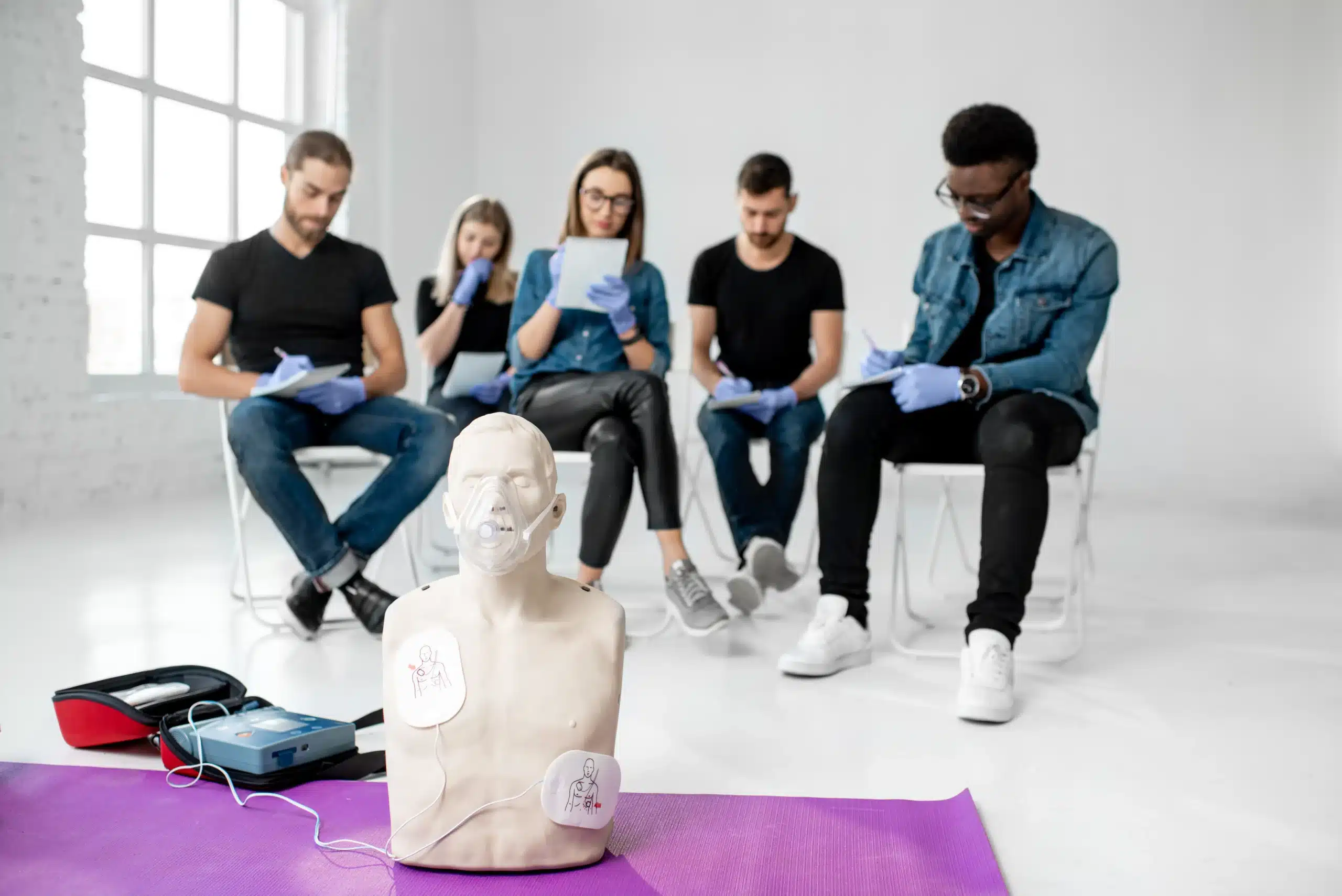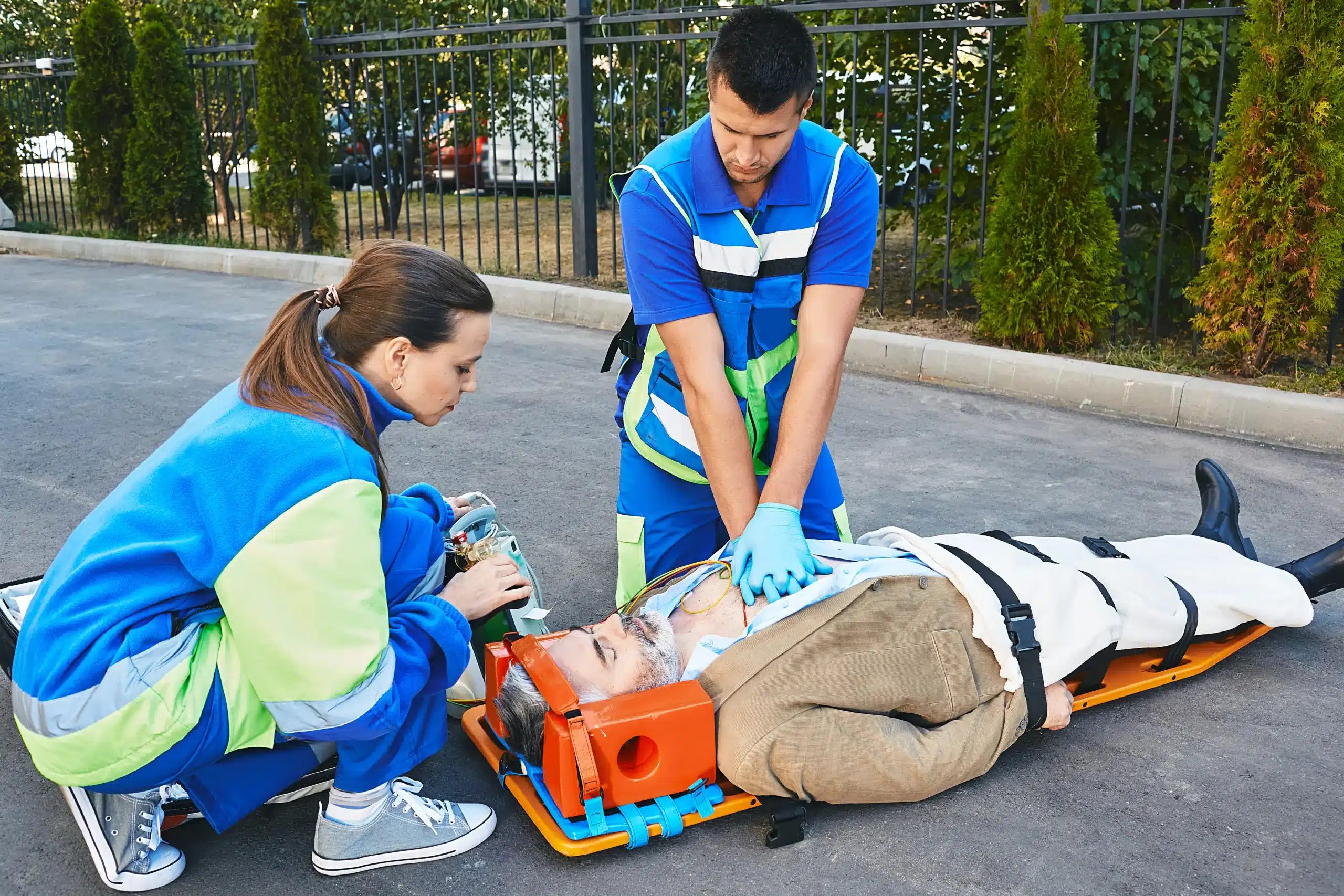Medical emergencies can happen anytime, anywhere. Are you prepared to respond? BLS courses in Woodland, CA, equip you with the skills and confidence to handle these situations effectively. This article serves as your go-to resource for understanding BLS certification, covering the significance of these courses, the various types available, finding the right provider in Woodland, what a typical course entails, and how to keep your certification current. Join us as we explore the world of BLS training and empower you to make a difference.
Key Takeaways
- BLS skills empower everyone: Learning BLS techniques, including CPR and AED use, prepares you to confidently respond to medical emergencies, regardless of your background. Explore various course formats to find one that suits your needs.
- Choose your BLS course wisely: Consider factors like cost, schedule flexibility, and the provider’s reputation when selecting a BLS course. AHA-certified training centers like Davis CPR Classes and Safety Training Seminars offer reliable options in the Woodland area.
- Stay current to save lives: Maintain your BLS skills and certification through regular renewal and continuing education. Actively refreshing your knowledge ensures you’re always ready to provide effective assistance in emergencies.
What are BLS Courses in Woodland, CA?
BLS courses in Woodland, CA, equip you with the skills to respond to medical emergencies. These courses adhere to American Heart Association (AHA) guidelines and cover techniques for CPR, recognizing and managing respiratory issues, using an AED, and relieving choking. Whether you’re a healthcare provider or simply want to be prepared, a BLS certification can make a real difference.
What are BLS Courses and Why are They Important?
BLS (Basic Life Support) courses are essential for healthcare professionals and anyone who wants to learn life-saving techniques. These courses, often provided by organizations like the Charles Institute, typically run for a full day (about nine hours) and lead to AHA certification. BLS training emphasizes high-quality CPR and other critical skills for managing medical emergencies, ultimately contributing to better outcomes. The impact of BLS CPR classes on the community is significant, increasing the number of people prepared to handle cardiac emergencies.
Types of BLS Courses
Several types of BLS courses cater to different needs. Safety Training Seminars offers various AHA-certified courses, including BLS, CPR, ACLS, PALS, and First Aid, in Woodland. These courses teach essential skills for managing medical emergencies involving infants, children, and adults. Many providers, like Bay Area CPR, offer flexible scheduling options, including daily classes and on-site training for groups, often with group discounts. This variety allows you to find a course that fits your schedule and learning style.
Find BLS Course Providers in Woodland
Finding the right BLS course provider can feel overwhelming, but several excellent options exist in Woodland. Here’s a breakdown of some reputable training centers to help you get started.
Davis CPR Classes
Davis CPR Classes offers a range of certification courses, including BLS, ACLS, and PALS, designed to equip you with essential lifesaving skills. They also offer the RQI program, a great option for medical professionals seeking BLS certification. Serving Davis, Woodland, and Sacramento, they make high-quality training accessible. Check their low price guarantee.
Safety Training Seminars
As a woman-owned AHA Training Center, Safety Training Seminars prioritizes high-quality instruction. They provide American Heart Association BLS, ACLS, PALS, CPR, and First Aid courses in Woodland and surrounding areas, with classes available seven days a week. This flexibility makes scheduling convenient. Browse their available BLS courses in Davis. They also offer courses on EMSA Health, Safety, and Lead Poisoning.
Dignity Health
If you’re not a healthcare provider but still want to learn essential lifesaving skills, Dignity Health in Sacramento offers a Basic Life Support (BLS) training course. This day-long session focuses on managing medical emergencies for infants, children, and adults.
Bay Area CPR
Bay Area CPR provides American Heart Association-certified CPR, BLS, ACLS, and PALS classes in Woodland. With daily availability and the option for on-site group training, they offer adaptable learning solutions.
In-Person vs. Online Courses
While traditional in-person BLS courses provide comprehensive hands-on training, online options offer flexibility. The American Heart Association’s RQI program is a blended learning experience, allowing healthcare professionals to complete the cognitive portion online before demonstrating their skills in person. This approach combines convenience with the necessary practical application. Many providers, including those listed above, offer this blended learning format.
What to Expect in a BLS Course
So, you’ve decided to take a BLS course—fantastic! Knowing what lies ahead can help you feel prepared and confident. Here’s a look at what a typical BLS course in Woodland involves:
Course Duration and Structure
BLS courses in Woodland generally run between four and six hours. The format typically combines interactive lectures, demonstrations, and hands-on practice. You’ll learn the latest BLS guidelines and techniques, including CPR for adults, children, and infants, AED use, and how to relieve choking. Some courses also incorporate rescue breathing and other essential life-saving skills. Find BLS courses in Davis through Davis CPR Classes.
Hands-on Training
Hands-on training is a major part of your BLS course. You’ll practice CPR compressions, giving breaths, and using an AED on training manikins. This practical experience is essential for developing muscle memory and confidence in your skills. Davis CPR Classes prioritizes hands-on learning to fully prepare you for real-life emergencies.
Instructor Qualifications
Your BLS instructors will be experienced healthcare professionals with a background in emergency medical situations. They maintain current certifications and participate in ongoing training to stay current with the latest BLS guidelines from the American Heart Association. For instance, Safety Training Seminars is a woman-owned AHA Training Center, ensuring high-quality instruction.
Certification Process
Once you successfully complete the course and skills testing, you’ll receive your American Heart Association BLS Provider card. This nationally recognized certification is usually valid for two years and verifies your ability to provide basic life support. It’s often a prerequisite for many healthcare and related positions.
Choose the Right BLS Course
Finding the right BLS course involves considering several factors to ensure it aligns with your needs and learning style. Let’s break down the key aspects to help you make the best decision.
Cost and Discounts
BLS course fees can vary, so compare pricing from different providers. Look for training centers with a low-price guarantee. Also, explore potential discounts. Some providers offer group discounts, often reducing the per-person cost when registering multiple participants. Check if the provider automatically applies discounts during checkout when you select multiple courses.
Scheduling
Your schedule is a big factor in choosing a course. Many training centers offer flexible scheduling options. Look for providers that offer courses every day of the week, including evenings, to accommodate busy schedules. This flexibility makes it easier to fit BLS training into your life.
Prerequisites and Materials
Before signing up, understand any prerequisites. Most BLS courses don’t require prior medical experience. Also, check what materials are included with your registration. Many courses include the AHA Basic Life Support Provider Manual in the registration fee. This manual covers essential content, including adult, child, and infant CPR, and AED use for healthcare providers.
Tips for BLS Course Success
A little preparation can go a long way in succeeding in your BLS course. Watching pre-course videos can significantly improve your understanding and increase your chances of passing the skills test. During the skills test, pay close attention to the on-screen instructions to ensure you perform each step correctly. These simple steps can boost your confidence and help you master the skills.
Maintain Your BLS Certification
Keeping your BLS skills sharp is crucial for providing effective care, and that means staying current with your certification. This section covers everything you need to know about BLS renewal requirements and continuing education.
Renewal Requirements
Your BLS certification, like most healthcare certifications, is valid for two years. This timeframe ensures that healthcare providers regularly refresh their knowledge and skills, keeping pace with advancements in resuscitation techniques. After two years, you’ll need to recertify by taking another BLS course. This maintains your competency and ensures you’re prepared for emergency situations. Mark your recertification date on your calendar so you don’t let it lapse.
Continuing Education
Even before your certification expires, there are ways to enhance your BLS skills. The American Heart Association (AHA) offers resources and continuing education to help you stay at the top of your game. After completing your initial BLS course, you’ll receive a digital certificate accessible on the AHA website. This allows easy verification of your certification. Also, consider exploring programs like the Resuscitation Quality Improvement (RQI) program. RQI offers a flexible and personalized approach to maintaining BLS competency through regular practice and assessment. By actively engaging in continuing education, you demonstrate a commitment to providing high-quality care.
Related Articles
- BLS Classes in Woodland: Your Complete Guide – Davis CPR Classes
- Advanced Cardiac Life Support in Woodland, CA – Davis CPR Classes
- CPR Courses in Woodland: Your Complete Guide – Davis CPR Classes
- Essential Role of CPR in Healthcare: A Lifesaving Skill
- BLS CPR Classes in Davis, CA – Davis CPR Classes
Frequently Asked Questions
How do I choose the right BLS course in Woodland? Consider factors like cost, schedule, instructor qualifications, and the type of certification offered. Look for AHA-certified courses that fit your availability and budget. Don’t hesitate to contact the training center directly if you have specific questions about the course content or format. Also, check if they offer a low-price guarantee or group discounts.
What if I have a busy schedule? Are there flexible course options? Yes, many providers in Woodland offer flexible scheduling, including weekend and evening classes. Some also provide on-site training for groups, which can be a convenient option for workplaces or organizations. Look for providers that offer courses multiple days a week to find a time that works best for you.
Do I need prior medical experience to take a BLS course? No, most BLS courses are designed for people with and without healthcare backgrounds. Whether you’re a medical professional, a concerned parent, or simply want to be prepared for emergencies, a BLS course can equip you with essential life-saving skills.
How long does my BLS certification last, and how do I renew it? BLS certification is typically valid for two years. To renew, you’ll need to retake the course. Make sure to mark your calendar to keep track of your certification expiration date. Some providers offer renewal reminders, so inquire about this when you register.
What’s the difference between online and in-person BLS courses? In-person courses offer hands-on training with instructors and provide immediate feedback. Online courses offer more flexibility, allowing you to learn at your own pace. Some programs, like the RQI program, combine online learning with in-person skills assessments, offering a blended approach. Consider your learning style and schedule when deciding which format is best for you.


